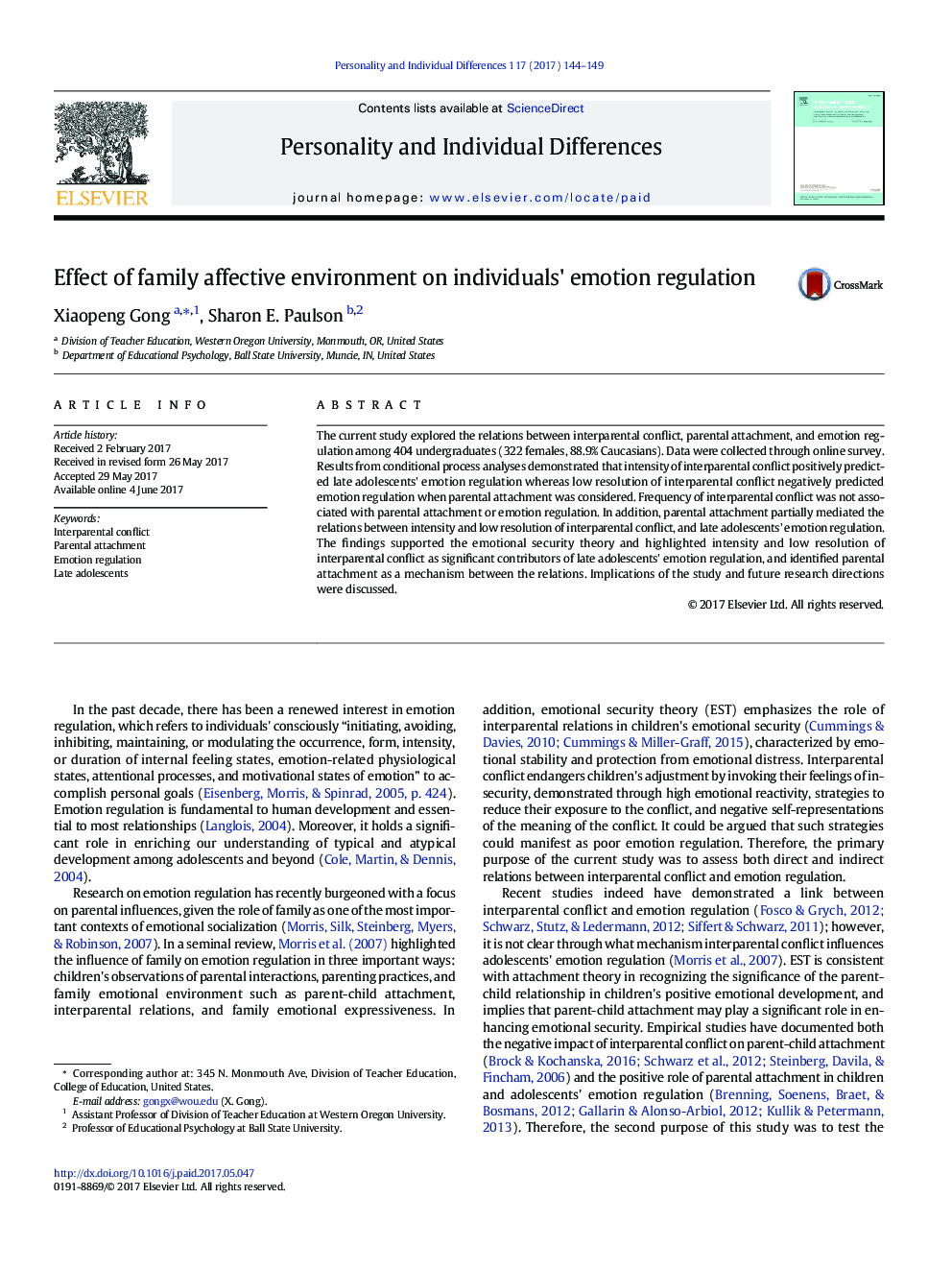| Article ID | Journal | Published Year | Pages | File Type |
|---|---|---|---|---|
| 5035988 | Personality and Individual Differences | 2017 | 6 Pages |
â¢Intensity of interparental conflict (IPC) negatively predicted parental attachment.â¢Low resolution of IPC negatively predicted parental attachment.â¢Parental attachment partially mediated the relations between IPC and emotion regulation.â¢Frequency of IPC did not predict parental attachment or emotion regulation.
The current study explored the relations between interparental conflict, parental attachment, and emotion regulation among 404 undergraduates (322 females, 88.9% Caucasians). Data were collected through online survey. Results from conditional process analyses demonstrated that intensity of interparental conflict positively predicted late adolescents' emotion regulation whereas low resolution of interparental conflict negatively predicted emotion regulation when parental attachment was considered. Frequency of interparental conflict was not associated with parental attachment or emotion regulation. In addition, parental attachment partially mediated the relations between intensity and low resolution of interparental conflict, and late adolescents' emotion regulation. The findings supported the emotional security theory and highlighted intensity and low resolution of interparental conflict as significant contributors of late adolescents' emotion regulation, and identified parental attachment as a mechanism between the relations. Implications of the study and future research directions were discussed.
